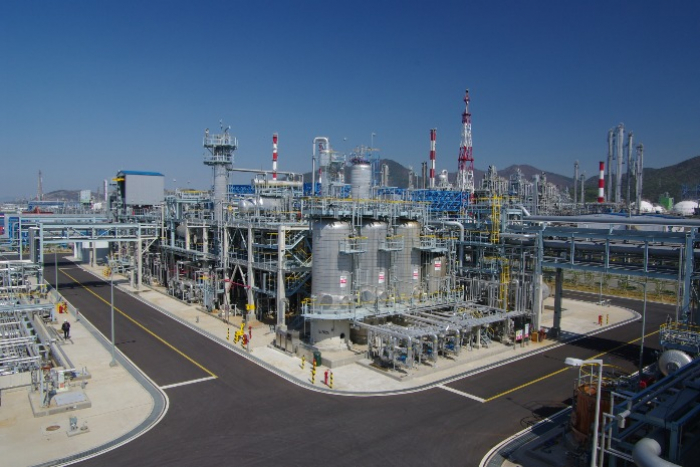Petrochemicals
Korea's DL Chem shrugs off slow petrochemical market in Q3
The chemical firm's Q3 operating profit is forecast to come in higher than last year's; growing demand for its key product polybutene
By Sep 26, 2022 (Gmt+09:00)
2
Min read
Most Read
LG Chem to sell water filter business to Glenwood PE for $692 million


Kyobo Life poised to buy Japan’s SBI Group-owned savings bank


KT&G eyes overseas M&A after rejecting activist fund's offer


StockX in merger talks with Naver’s online reseller Kream


Mirae Asset to be named Korea Post’s core real estate fund operator



The key growth drivers are increasing demand for polybutene, DL Chemical’s key product used as lubricants for metalwork in transportation and construction, and strong earnings of the firm’s US-based chemical subsidiary Kraton Corp., sources say.
The Korean chemical firm's third-quarter operating profit is expected to come in much higher than the 31.7 billion won ($22.1 million) posted in the same quarter of 2021.
While some major Korean petrochemical firms saw losses in the second quarter, DL Chemical stood out with 53.3 billion won in operating profit, up 60.5% from the same quarter of 2021. The firm reported 1.33 trillion won in revenue during the April-June quarter, nearly quadruple the 363.8 billion won in the same quarter of 2021.
RAMPING UP SIZE BY ACQUIRING KRATON, CARIFLEX
DL Chemical is the world’s largest polybutene manufacturer, producing 200,000 tons of the material per year at its Yeosu plant in Korea, around 20% of the total global production of 1 million tons. Polybutene prices have steadily increased thanks to strong demand, industry sources said.
Kraton, which DL Chemical acquired for around $2.5 billion last year, contributed to the Korean chemical firm’s earnings growth. The Houston-based specialty polymer producer posted 128 billion won in second-quarter operating profit.
Kraton was spun off from global energy giant Shell Chemicals in 2001 and is the world’s leading styrenic block copolymers (SBC) producer. SBC is widely used in sealants, gasket materials, hotmelt adhesives, footwear soles and bitumen products for road paving and roofing applications.
As DL Chemical completed the acquisition of Kraton in March, the Korean firm’s earnings will significantly improve from the next year, DL Chemical official said.
The Korean chemical firm is proactively expanding its size via mergers and acquisitions. It purchased Singapore-based Cariflex, a specialty synthetic rubber and latex producer, from Kraton for $530 million in March 2020. In July of this year, DL Chemical invested 500 billion won to build the world's largest polyisoprene rubber latex plant in Singapore, which aims to increase Cariflex's global polyisoprene latex production capacity by over 50%.
Write to Kyung-Min Kang at kkm1026@hankyung.com
Jihyun Kim edited this article.
More to Read
-
 PetrochemicalsDL Chemical’s Cariflex to build $384 million latex plant in Singapore
PetrochemicalsDL Chemical’s Cariflex to build $384 million latex plant in SingaporeJul 28, 2022 (Gmt+09:00)
1 Min read -

-
 Mergers & AcquisitionsBehind the scenes of DL Chemical’s unexpected $2.5 bn Kraton purchase
Mergers & AcquisitionsBehind the scenes of DL Chemical’s unexpected $2.5 bn Kraton purchaseSep 30, 2021 (Gmt+09:00)
4 Min read -
 Mergers & AcquisitionsDL Chem seals $2.5 bn purchase of US chemical maker Kraton
Mergers & AcquisitionsDL Chem seals $2.5 bn purchase of US chemical maker KratonSep 28, 2021 (Gmt+09:00)
4 Min read -
 PetrochemicalsDL Chem to spend $2 bn on petrochemical expansion
PetrochemicalsDL Chem to spend $2 bn on petrochemical expansionSep 12, 2021 (Gmt+09:00)
3 Min read
Comment 0
LOG IN


